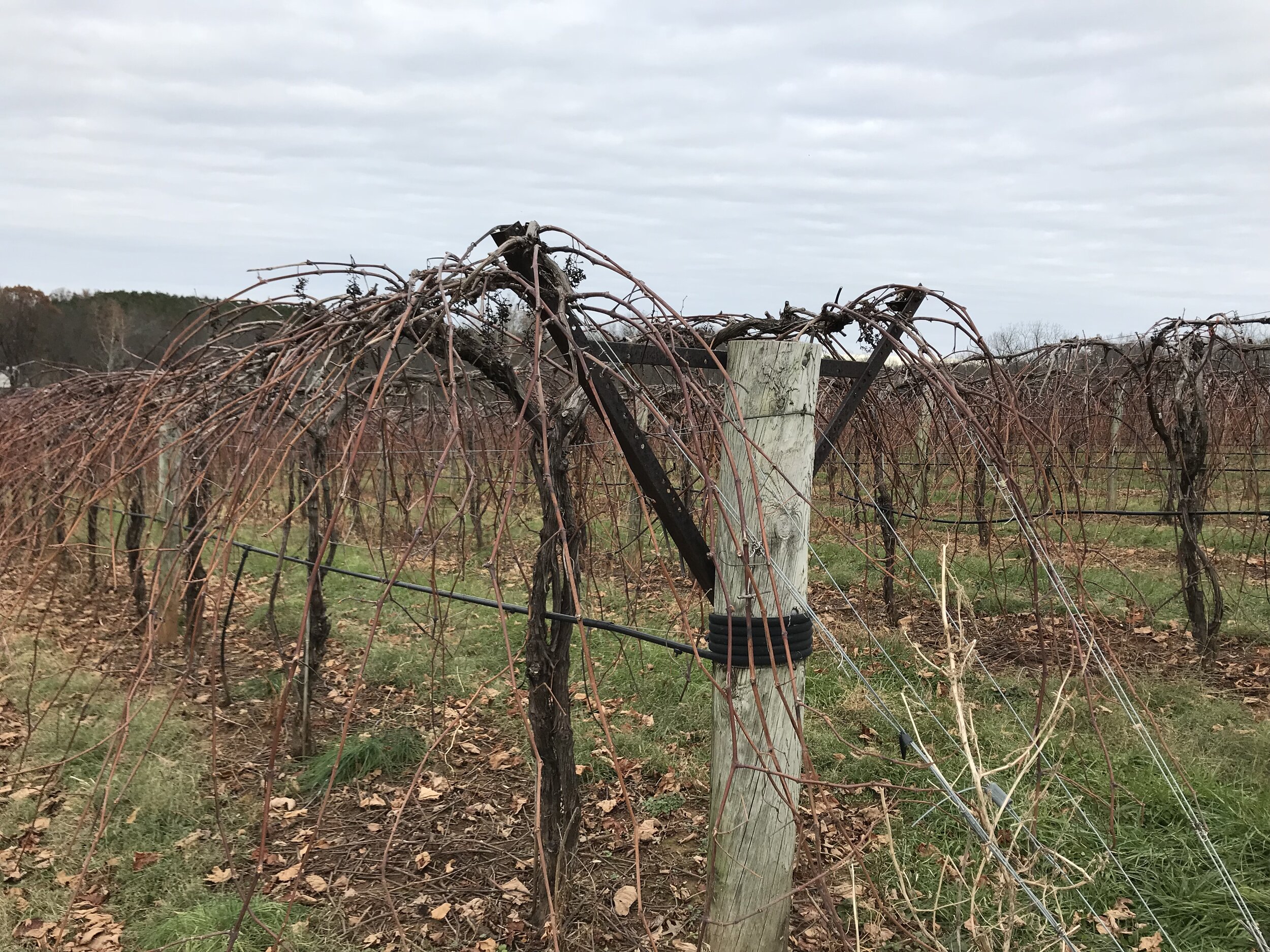Cold Vines Lead to a Fruitful Spring
Brrrrrrr! Is it me or does it feel colder than last year? Winter tends to be viewed as the time when the vines receive a ‘haircut’ before the next growing season. While that is true, the effects of colder temperatures on the overall health of the vineyard also merit consideration.
Colder temperatures will actually eliminate certain pests before the upcoming growing season. Insects like the Glassy Wing Sharpshooter, which are vectors for Pierce’s Disease, will actually overwinter in trees and weeds. Towards the end of winter when temperatures begin to rise, they will begin their life cycle again causing them to become an immediate threat even before the growing season starts. When temperatures remain low, their water sources will freeze causing death through dehydration. Don’t feel too bad, these guys can wipe out entire acres in a matter of months! Other pests such as Leaf hoppers, Mealy bugs, and Japanese beetles also become stunted with freezing temperatures.
While cold temperatures can eliminate harmful pests they can also create concern towards the health of the vine. When vines go dormant they retain water, which under certain circumstances could freeze and cause the vine to burst. This looks like splits or cracks on the surface of the vine. These areas, if not removed from the vine, will eventually become entry ways for disease. This type of damage is commonly seen in younger vines and new growth that has yet to be pruned away.
Sustained freezing temperatures will often result in frozen ground which is harmful to new root systems that have yet to fully establish themselves. It’s like frost bite for roots and results in the root tendrils dying. When the vine emerges from dormancy, it will struggle to pull up water and nutrients. This can be circumvented by choosing rootstock that is cold tolerant and prefers to dig in deeper to the soil. Norton for instance, is self-rooted, meaning it’s not grafted to root stock and because it’s “Virginia’s Grape” it’s adapted properly to the climate here. The roots run deep in the soil and with 20 years of development, root systems can easily be 6 feet to 15 feet into the soil!
The vineyards here at Chrysalis are 20 years old and rarely see issues with cold temperatures but it never hurts to be ready. Simply being present and aware of the vines health makes a huge difference in the quality of wine produced. Luckily, we have an experienced crew that works extremely hard to do just that!
